Affiliated Researchers
The NIA's Affiliated Researchers Info

Main content
2025 Affiliated Researchers
Peter Stuart Robinson, Associate Professor, Department of Social Sciences, The Arctic University of Norway
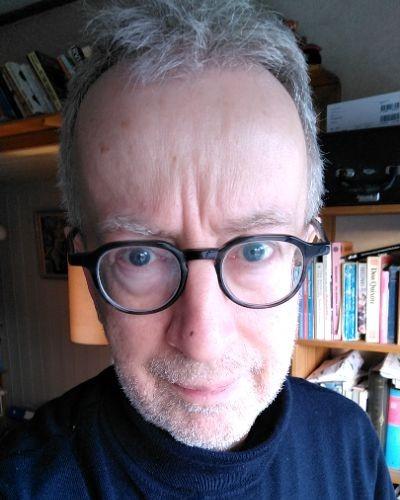
Project Title: Ontological Presentism: Ancient Democracy in the Eye of the Unselfconscious ‘Homo Economicus’
Project Description: This research explores how dominant modern forms of self-identification shape the interpretation of antiquity, reversing the typical reception approach that studies how ancient tropes are appropriated to construct modern identities. Focusing on the interplay between contemporary identity and historical interpretation, it examines how modern scholars project present-day conceptualizations of the individual—particularly the late-capitalist notion of the homo economicus—onto ancient democratic practice. Through a critical engagement with Josiah Ober’s game-theoretical approach to Athenian democracy, the project investigates how such frameworks reify modern assumptions within normative democratic theory, thereby transforming ancient models into reflections of modern political and economic thought rather than distinct historical phenomena.
Research Affiliation Period: October 2025 – June 2026
Theodoros Rakopoulos, Professor, Department of Social Anthropology, University of Oslo
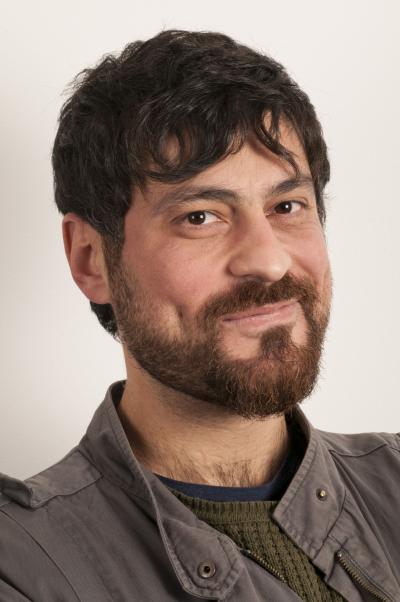
Project Title: Of Taboo and “the Wild”: Hunting and Selling Boar Among Sufi Muslims Project Description: This project explores how religious taboo, environmental practice, and intercommunal relations intersect in Muslim communities of the Balkans and the eastern Mediterranean. While the consumption of pork remains a powerful taboo in Islam, the practice of hunting wild boar is widespread among groups such as the Alevis and Bektashis, who live in mixed Christian–Muslim villages between Greece and Albania. The research investigates how hunting and distributing boar meat functions as a culturally specific “filter” of the pork taboo—ritualizing the act of killing without necessarily transgressing the prohibition. These practices reveal complex dynamics of coexistence, negotiation, and exchange, as Alevi hunters provide boar meat to Christian neighbors and are, in turn, stigmatized by Sunni communities. Through an environmental anthropological lens, the project examines how “wildness” is invoked as a cleansing category that redefines religious boundaries and human–animal relations, illuminating the ways in which Alevism’s cosmology of “continuity with nature” mediates ideas of purity, taboo, and community identity.
Research Affiliation Period: October 2025 – June 2026
Clio Chrysostomidis, MA Student in Archaeology, Department of Archaeology, Conservation, and History, University of Oslo (Recipient of the Erik Østby Stipend)
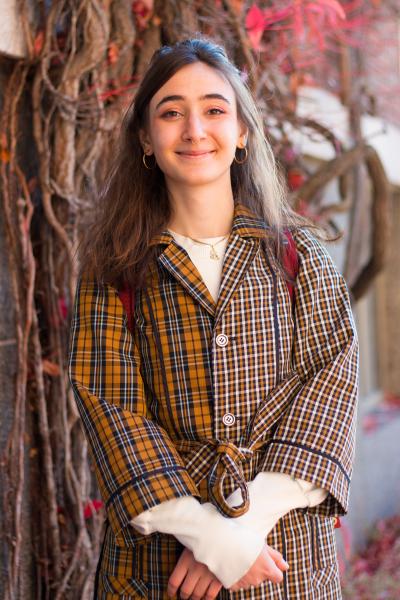
Project Title: Challenging Care: Infant Mortality and Kourotrophic Practices in Classical and Hellenistic Athens
Project Description: This research revisits long-standing assumptions about high infant mortality in Classical and Hellenistic Athens by questioning not how many infants died, but why so few are visible in the archaeological record. Rather than relying solely on paleodemographic methods—which are limited by the scarcity of infant burials and their cultural variability—the project investigates the social, ritual, and environmental factors that shaped how infants were treated in life and death. Drawing on archaeological evidence, ancient literary sources, and sociological and ethnographic perspectives, it explores the interplay between disease, caregiving, and possible infanticide, emphasizing how these reflect broader attitudes toward family, community, and the value of life in Athenian society. By reframing absence as evidence, the study aims to illuminate both the lived experience of infancy and the social logic governing its near-invisibility in the archaeological record.
Research Affiliation Period: September – October 2025
Håkon Glørstad, Professor, Museum of Cultural History, Department of Archaeology, University of Oslo
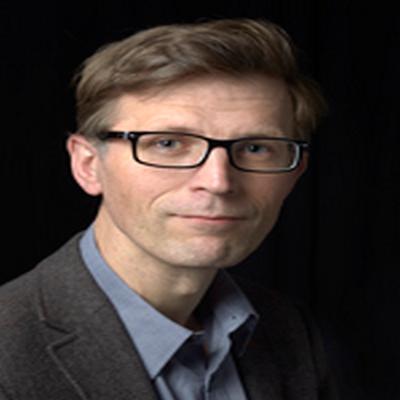
Project Title: Middle and Late Neolithic Studies
Project Description: The aim of my research stay in Athens is to establish a comprehensive overview of the Middle and Late Neolithic periods in Greece and parts of the Balkans. By focusing on this crucial region, we seek to understand its significant role in the broader development of the European Neolithic. The project will involve an extended stay in Athens, where I will explore museum collections, engage with leading scholars, and visit key archaeological sites central to this historical period.
Research Affiliation Period: Late May - Early June
Jorunn Økland, Professor, Centre for Gender Research,University of Oslo

Project Title: Master Builders o of Christianity: Craftswomen in the Early Roman Empire and the Emergence of a New Religion
Project Description: This volume aims to synthesize various material and textual sources to reevaluate the emergence of Christianity, highlighting the role of women in the Pauline movement as "Master Builders" of the new religion. By combining archaeological remains, Early Christian texts, and studies of Greco-Roman religion, it presents a more inclusive narrative that moves beyond canonical biblical interpretations. The research explores the agency of women in the early Christian world, particularly craftswomen, and examines how these figures contributed to the formation of Christianity. Drawing on case studies from Corinth and other archaeological sites, the work challenges traditional gender narratives and advocates for a broader understanding of early Christian history.
Research Affiliation Period: Spring Semester
Helena Seibicke, Postdoctoral Researcher/Assistant Professor, Department of Political Science, University of Oslo

Project Title: The Institutional Design of Scientific Advisory Boards on Climate Change
Project Description: This project examines the institutional design of scientific advisory bodies, with a particular focus on climate governance. While legislative science advice is increasingly shaping policymaking across Europe, in-depth studies of advisory structures remain scarce. Greece, a country highly affected by climate change, provides a critical case study. Through interviews with members of the Greek Scientific Committee on Climate Change, this research explores how expert knowledge informs governmental responses. The study is part of ACCELZ – Accelerating Climate Action and the State: Getting to Net Zero, funded by the Research Council of Norway.
Research Affiliation Period: March - April
Arve Egil Asbjørnsen, Professor, Department of Biological and Medical Psychology, University of Bergen
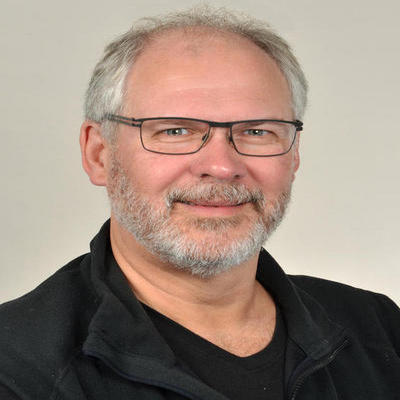
Project Title: Implicit Language Learning
Project Description: Spoken language consists of sound patterns occurring with some regularity, and the distribution of these sound patterns act as cues for implicit processing and learning. Earlier studies have documented that we are able to detect and identify adjacent and non-adjacent sound patterns that act as cues to both word boundaries and to morpho-syntactical structures when we are exposed to a new and unfamiliar language. This has been shown using both artificial and natural language, and the ability to do this is shaped at birth. In this project we aim to design a series of experiments where we will use Greek grammatical structures as stimuli for of language learning in Greek naïve participants, using single words, simple syntactical structures and naturally occurring speech to target different aspects of implicit language learning based on statistical properties of the language. The mechanisms used for implicit language learning are believed to be a part of the probability calculator that is closely related to the basic information processing capacity of our nervous system that can automatically identify and evaluate sensory input. It is suggested that these mechanisms are modality general and not uniquely designed for language learning, but better understanding of how these mechanisms work can give important knowledge for language teaching strategies as well as remedial planning for language disorders.
Research Affiliation Period: April
Ariadne Kostomitsopoulou Marketou, Postdoctoral Fellow, MF Norwegian School of Theology, Religion and Society

Project Title: The Early History of the Codex A New Methodology and Ethics for Manuscript Studies (EthiCodex)
Project Description: The project The Early History of the Codex: A New Methodology and Ethics for Manuscript Studies (EthiCodex), funded by the Norwegian Research Council, focuses on creating a comprehensive database of early codices (1st to 5th century CE). This database, developed by a team led by Prof. Brent Nongbri, aims to compile codicological and provenance data from approximately two thousand codices. During my upcoming research stay in Athens, I will contribute to this project by accessing crucial resources in the city's libraries, which will aid in the interpretation and publication of data collected during a prior research stay in Berlin. This will significantly advance the project’s outcomes.
Research Affiliation Period: February - March
Francesco Maniglia, Doctoral Research Fellow, Department of Archaeology, Conservation and History, University of Oslo

Project Title: Remolding Cultures: Issues of Continuity and Change in Magna Graecia Under Roman Rule
Project Description: My PhD research examines the representation of the Greeks of Italy during the cultural shift initiated by the Roman conquest of Magna Graecia, focusing on cross-cultural negotiations and their impact in the late Republic and early Imperial period. The goal is to trace cultural continuity and innovation throughout the integration process under Roman rule. My research trip to Athens will be essential for finalizing my thesis, particularly in re-editing the third chapter, which explores the international relations between Italiotes and Eastern Greeks. This chapter will benefit from fieldwork focused on studying and photographing key epigraphic material from Delos, Delphi, and Olympia, enriching the analysis with primary data gathered on-site.
Research Affiliation Period: April - May
Helge Ask, Doctoral Student, Center for Mission and Global Studies, Faculty of Theology and Social Studies, VID Specialized University

Project Title: Angels Who Sinned: Reading Jude 6 and 2 Pet 2:4. From an Imperial-Critical Perspective
Project Description: This Ph.D. project explores the interaction of the texts Jude 6 and 2 Peter 2:4 with their Roman imperial context. Both passages, which address the fallen angels as warnings against sinful conduct, are framed by the influence of Roman imperial ideology and earlier empires. The project seeks to investigate this complexity through imperial criticism, which serves as a theoretical lens for interpreting these texts. A key research question guiding the study is how an imperial-critical reading of Jude 6 and 2 Peter 2:4 can deepen our understanding of these texts. Additionally, the project will examine the development of the fallen angels concept in Jude and 2 Peter, drawing insights from the imperial context.
Research Affiliation Period: September - October
2024 Affiliated Researchers
Dr. Håkon Glørstad, Professor, Museum of Cultural History, Department of Archaeology, University of Oslo

Project Title: Middle and Late Neolithic Studies
Project Description: The aim of my research stay in Athens is to establish a comprehensive overview of the Middle and Late Neolithic periods in Greece and parts of the Balkans. By focusing on this crucial region, we seek to understand its significant role in the broader development of the European Neolithic. The project will involve an extended stay in Athens, where I will explore museum collections, engage with leading scholars, and visit key archaeological sites central to this historical period.
Dr. Arve Egil Asbjørnsen, Professor, Department of Biological and Medical Psychology, University of Bergen

Project Title: Implicit Language Learning
Project Description: Spoken language consists of sound patterns occurring with some regularity, and the distribution of these sound patterns act as cues for implicit processing and learning. Earlier studies have documented that we are able to detect and identify adjacent and non-adjacent sound patterns that act as cues to both word boundaries and to morpho-syntactical structures when we are exposed to a new and unfamiliar language. This has been shown using both artificial and natural language, and the ability to do this is shaped at birth. In this project we aim to design a series of experiments where we will use Greek grammatical structures as stimuli for of language learning in Greek naïve participants, using single words, simple syntactical structures and naturally occurring speech to target different aspects of implicit language learning based on statistical properties of the language. The mechanisms used for implicit language learning are believed to be a part of the probability calculator that is closely related to the basic information processing capacity of our nervous system that can automatically identify and evaluate sensory input. It is suggested that these mechanisms are modality general and not uniquely designed for language learning, but better understanding of how these mechanisms work can give important knowledge for language teaching strategies as well as remedial planning for language disorders.
Mads Sondre Stryger Prøitz, PhD student, School of Archaeology and Faculty of Classics, University of Oxford
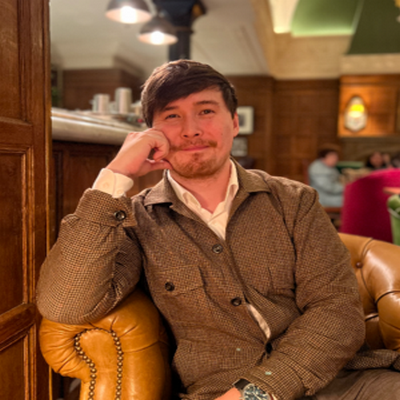
Project Title: Manifesting Identity: Symbols and Iconography in Ancient Greece – Analysing Collective Identities and Propaganda
Project Description: Archaic and Classical Greece saw significant changes to social organisation and collective and cultural identities. Together with the formation of city-states, Greek collective identities/self-representations and understandings were created, reinforced, and spread throughout the Greek world, however, the why and how of the matter remains nebulous. My project examines how iconography played a role in forming collective identities and social organisations during these periods in mainland Greece. My body of evidence is the understudied source of shield emblems. My research question can be summarized as follows: how does the use of iconography, focusing on shield emblems and archaeological material depicting such emblems, reflect these social transformations? What can iconographic use tell us about Greek collective identities/self-representation and memory, and their connection to emerging city-states?
Dr. Markos Katsianis, Assistant Professor, Department of History and Archaeology, University of Patras
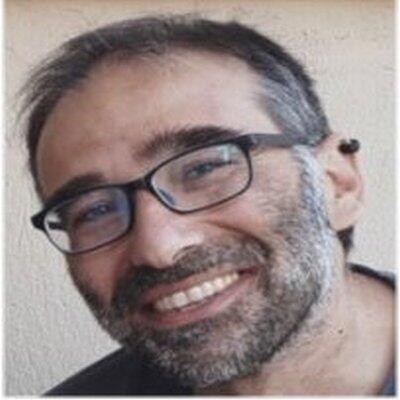
Project Title: Paliambela Kolindros Archaeological Project / Amphipolis Excavation Project
Project Description: Dr. Markos Katsianis will be continuing his research into two ongoing projects during Spring 2024. This includes work on semantic modeling and post-excavation stratigraphic data study for the Paliambela Kolindros Archaeological Project, as well as data documentation for the Amphipolis Excavation Project.
Oliver Hambsch, PhD Research Fellow, Oslo National Academy of the Arts
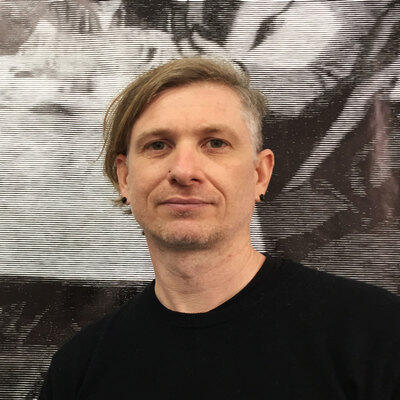
Project Title: Material Memory
Project Description: My research at the NIA is part of the larger research project I’m conducting during my PhD research fellowship at the Oslo National Academy of the Arts. My current research is into the materiality of printmaking as a conceptual tool with which to address larger issues of memory and identity through analogy (https://www.researchcatalogue.net/view/1495740/2521216). A large part of my current research consists of an investigation into materiality and process within artmaking. As an artist whose practice is centred around these two aspects as essential meaning-forming components of her art, Siopis’ work is of particular interest to me. Furthermore, Siopis has extensively dealt with issues of identity and memory in her work. As such I consider Siopis an important reference artist in my research. The research I’m planning to conduct at the Norwegian Institute at Athens would consist of an in depth examination of Siopis’ show, followed by an interview with her and potentially the curator of the exhibition. I am planning on revisiting the show over the course of a couple of days as well as examining any subsequent critiques and reviews. Access to relevant libraries would be beneficial too. The primary research conducted on site will inform and integrate into my larger research project upon my return to Oslo.
Jørgen Pedersen, Professor, HVL Business school, Western Norway University

Project Title: Global Justice
Project Description: During his research stay in Athens, Prof. Pedersen will be working on the topic of global justice, which is also the focus of his forthcoming monograph, Global rettferdighet og Norges rolle i verden.
Giulia Frigerio, Marie Skłodowska-Curie Postdoctoral Fellow, Department of Philosophy, Classics, History of Art and Ideas, University of Oslo

Project Title: Female Bodies in Sacred Spaces: Re-evaluating Women's Agency in the Greek world
Project Description: This project challenges the traditional scholarly narrative that ancient Greek women were excluded from spaces of power, demonstrating instead their central role in religious agency. Contrary to claims of legal and spatial restrictions, evidence reveals that women held significant religious authority, sometimes surpassing men. Figures such as the oracle of Delphi and the priestesses of Demeter exemplify female leadership in sacred contexts. This research reassesses women's agency in Greek religion and applies an interdisciplinary methodology to reconstruct historical attitudes toward female religious power. A field study in Athens will provide essential spatial insights into key sanctuaries.
Helena Seibicke, Postdoctoral Researcher/Assistant Professor, Department of Political Science, University of Oslo

Project Title: The Institutional Design of Scientific Advisory Boards on Climate Change
Project Description: This project examines the institutional design of scientific advisory bodies, with a particular focus on climate governance. While legislative science advice is increasingly shaping policymaking across Europe, in-depth studies of advisory structures remain scarce. Greece, a country highly affected by climate change, provides a critical case study. Through interviews with members of the Greek Scientific Committee on Climate Change, this research explores how expert knowledge informs governmental responses. The study is part of ACCELZ – Accelerating Climate Action and the State: Getting to Net Zero, funded by the Research Council of Norway.
Solveig Styve Holte, PhD Candidate, Oslo Academy of the Arts

Project Title: Singularities and the Shared Commons. Explorations of Authorship in Dance and Choreography
Project Description: My PhD research investigates choreographic methods centered on archives in dance, focusing on intersubjectivity and intertextuality. Rather than creating new material from scratch, I develop choreography through embodiment and storytelling, engaging with historical archives and existing movement materials. During my exchange at ASFA in Athens, I will explore methods of post-production and reflection while contributing through workshops on movement and performance. My research also examines intersections between choreography and visual art, particularly in relation to singularity, authorship, and archival practices.
Sunniva Mundal Haug, MA Student, History of Art, Department of Linguistic, Literary and Aesthetic Studies, UiB; Recipient of the Athenaeum Travel Grant
Project Title: Material Agency, Psychoanalysis, and the Gaze in Greco-Roman Art
Project Description: My MA project explores the intersection of material agency and psychoanalysis in the study of Greco-Roman art, focusing on vision and the gaze. Drawing on scholars such as Latour, Gell, Bennett, and Lacan, I examine how objects can possess agency and how psychoanalysis can address their psychological impact. My primary case study is the Braschi Antinous and other posthumous depictions of Antinous, investigating how these sculptures function as both deification and immortalization.
Christian Walter Peter Omlin, Professor, Department of Information and Communication Technology, University of Agder

Project Title: AI and the Humanities
Project Description: Artificial intelligence (AI) is reshaping research in the humanities by offering new tools for analyzing cultural heritage, historical records, and artistic expression. From text mining and digital preservation to bias detection and ethical AI, its applications enhance both research and education. At the same time, humanities disciplines provide critical insights into AI’s ethical deployment, cultural sensitivity, and artificial morality. The Aegean region, with its rich academic and cultural landscape, presents a unique hub for interdisciplinary collaboration. A forthcoming workshop at the Norwegian Institute in Athens will bring together experts to explore AI’s role in humanities research and draft a collaborative research agenda.
2023 Affiliated Researchers
Dr. Alex Knodell, Associate Professor, Classics Department, Carleton University, US
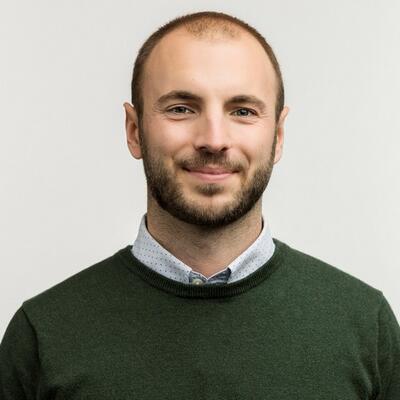
Project Title: Small Cycladic Islands Project
Project Description: Dr. Knodell is the co-director of the Small Cycladic Islands Project (SCIP; 2019-present), a collaboration (synergasia) between the Ephorate of Antiquities of the Cyclades, the Norwegian Institute at Athens, and Carleton College. The synergasia operates under the direction of Demetris Athanasoulis (Director of the Cyclades Ephorate), and the research is co-directed by Drs. Alex Knodell and Žarko Tankosić (University of Bergen). SCIP is a diachronic archaeological survey of several small, uninhabited islands in the Cycladic Archipelago (Greece). As of 2022, SCIP has carried out comprehensive surveys of 45 islands. During his stay at NIA, Dr. Knodell will be working on data analysis and publication of SCIP’s results.
For more information about SCIP, please follow this link.
Dr. Anne Helen Mydland, Professor, The Art Academy – Department of Contemporary Art, University of Bergen
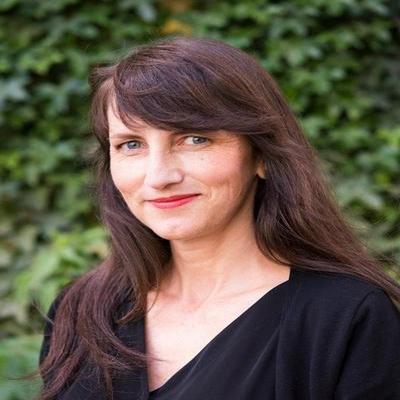
Project Title: Clay and Ceramics
Project Description: During her research stay at the NIA, Professor Mydland aims to establish connections with the local archaeological and museological community. She plans to explore artifacts and collections in archaeological museums and engage with Athens' burgeoning contemporary art scene. Her objective is to broaden the scope of her current research projects by incorporating insights and collaborations from the local academic community. Additionally, she seeks to establish contacts for potential future collaborative endeavors.